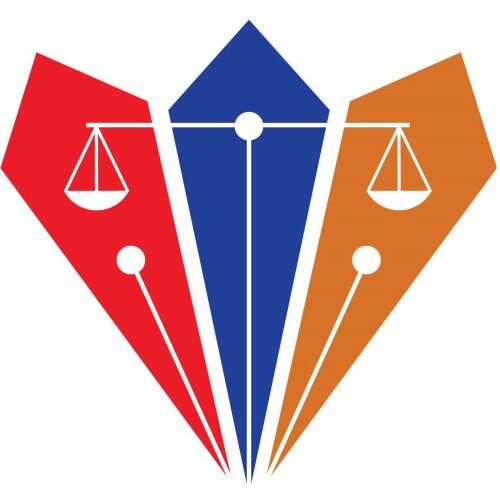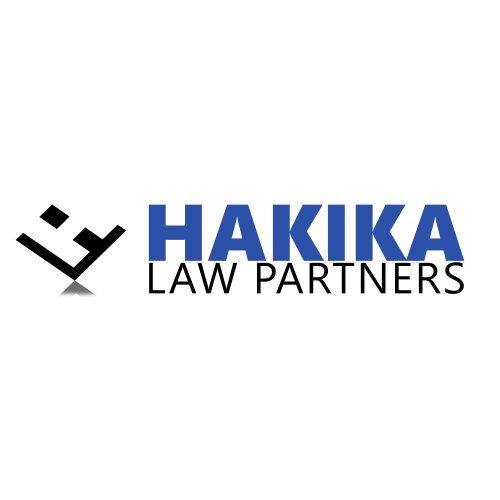Best Conveyancing Lawyers in Tanzania
Share your needs with us, get contacted by law firms.
Free. Takes 2 min.
Free Guide to Hiring a Real Estate Lawyer
Or refine your search by selecting a city:
List of the best lawyers in Tanzania
About Conveyancing Law in Tanzania
Conveyancing in Tanzania refers to the legal process of transferring ownership of property or land from one party to another. This process involves preparing, verifying, and executing documents that facilitate the lawful change of ownership. Conveyancing law is governed by various statutes and regulations that ensure the legality and validity of transactions involving immovable property. The process is crucial for buyers, sellers, and developers, as it guarantees that every step complies with legal requirements, protects property rights, and minimizes disputes.
Why You May Need a Lawyer
Engaging a lawyer in conveyancing transactions in Tanzania is highly recommended for several reasons. Some common situations where legal help is essential include:
- Purchasing property - A lawyer ensures that the property title is clear and there are no legal complications or encumbrances.
- Selling property - Legal professionals manage and verify documents required for the transfer, making the sale process smoother.
- Transferring property to relatives or heirs - Proper legal guidance is needed to execute a lawful transfer to prevent future disputes.
- Resolving land or property disputes - Lawyers help mediate and resolve conflicts related to ownership, boundaries, or rights of use.
- Handling mortgages or loans against property - Legal advice ensures loan agreements are valid and protect your interests.
- Dealing with government authorities - Lawyers liaise with regulatory bodies on your behalf, especially when dealing with permissions, consents, or taxes.
Local Laws Overview
Tanzania’s conveyancing framework is shaped by several local laws and regulations, including the Land Act 1999, the Village Land Act 1999, the Registration of Documents Act, and various government directives. Key aspects include:
- Land Tenure System - Most land in Tanzania is held under leasehold (not freehold), with the government retaining ultimate control. Customary land rights are recognized, especially in rural areas.
- Title Registration - All land transfers must be registered with the appropriate land registry. Only registered titles confer legal ownership.
- Consent Requirements - Many transactions, especially for foreign buyers, require consent from the Ministry or relevant authorities before completion.
- Due Diligence - Before purchasing property, conducting a formal search at the Ministry of Lands and local registry is required to confirm ownership and check for encumbrances or disputes.
- Stamp Duty and Taxes - Property transactions incur duties and taxes that must be paid for the transfer to be legally recognized.
- Professional Involvement - In many cases, a licensed advocate or conveyancer must oversee and authenticate documents for the transaction.
Frequently Asked Questions
What is the first step in the conveyancing process in Tanzania?
The first step is conducting due diligence on the property, which includes searching the land registry to confirm the ownership status and identify any encumbrances or disputes attached to the title.
Who can own land in Tanzania?
Land in Tanzania is owned by the state, which grants rights of occupancy to citizens and, in limited circumstances, to foreigners with government consent, usually for investment purposes.
How long does a typical conveyancing transaction take?
The duration varies depending on the complexity and the parties involved. On average, straightforward transactions can take between one to three months, provided all requirements are met promptly.
What documents are necessary for conveyancing?
Key documents include the certificate of title or right of occupancy, sale agreement, transfer forms, consent from authorities (where required), tax clearance certificates, and identification documents of the parties involved.
Is it mandatory to use a lawyer for conveyancing in Tanzania?
While not always mandatory, it is highly advisable to engage a qualified lawyer or a licensed conveyancing professional to avoid legal pitfalls and ensure the transaction is valid and binding.
Are there taxes or fees involved in property transfer?
Yes, property transactions attract several taxes and fees, such as stamp duty, capital gains tax, and registration fees, which must be settled before the transfer is registered.
How is ownership transferred after purchase?
Once all documents are signed and taxes paid, the new ownership is registered at the relevant land registry office, which issues an updated certificate reflecting the new owner's details.
Can foreigners buy property in Tanzania?
Foreigners can acquire land under certain conditions, mostly related to investment purposes, and must receive government consent. Pure residential land ownership by non-citizens is generally not permitted.
What happens if there is a dispute during the conveyancing process?
Disputes are often resolved through negotiation or mediation, but unresolved conflicts may be taken to court or land tribunals. It's best to involve a lawyer to handle any disputes professionally.
How can I verify if the land is free from disputes?
Conduct a search at the relevant land registry and local authorities, and consult with a lawyer to ensure there are no pending claims, litigation, or debts attached to the property.
Additional Resources
For more information and assistance regarding conveyancing in Tanzania, you may consider the following resources:
- The Ministry of Lands, Housing and Human Settlements Development - Responsible for land administration and policy implementation.
- The Tanzania Land Registry - Handles title registration and provides land search services.
- The Law Society of Tanzania - Offers a directory of licensed advocates and legal professionals.
- Local Municipal Councils or District Land Offices - Key for local land matters, approvals, and clarifications.
- Professional conveyancing firms and legal aid organizations - Provide guidance and support for property transactions and disputes.
Next Steps
If you need legal assistance in conveyancing, consider the following steps:
- Gather all available documents related to the property, including titles, agreements, and identification.
- Identify your specific needs, such as buying, selling, or resolving a dispute.
- Research and contact a qualified lawyer or conveyancer with experience in Tanzanian property law.
- Arrange a consultation to discuss your case and receive tailored legal advice.
- Work closely with your legal advisor to conduct the necessary property searches and ensure all documentation and authorizations are in order.
- Stay informed about all fees, taxes, and timelines involved in the process to prevent delays or unexpected issues.
- Ensure that each stage of your transaction is properly documented and legally compliant.
Taking these steps with professional guidance will help secure your transaction and protect your rights in all conveyancing matters in Tanzania.
Lawzana helps you find the best lawyers and law firms in Tanzania through a curated and pre-screened list of qualified legal professionals. Our platform offers rankings and detailed profiles of attorneys and law firms, allowing you to compare based on practice areas, including Conveyancing, experience, and client feedback.
Each profile includes a description of the firm's areas of practice, client reviews, team members and partners, year of establishment, spoken languages, office locations, contact information, social media presence, and any published articles or resources. Most firms on our platform speak English and are experienced in both local and international legal matters.
Get a quote from top-rated law firms in Tanzania — quickly, securely, and without unnecessary hassle.
Disclaimer:
The information provided on this page is for general informational purposes only and does not constitute legal advice. While we strive to ensure the accuracy and relevance of the content, legal information may change over time, and interpretations of the law can vary. You should always consult with a qualified legal professional for advice specific to your situation.
We disclaim all liability for actions taken or not taken based on the content of this page. If you believe any information is incorrect or outdated, please contact us, and we will review and update it where appropriate.
Browse conveyancing law firms by city in Tanzania
Refine your search by selecting a city.













